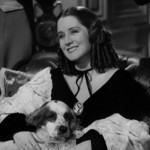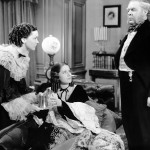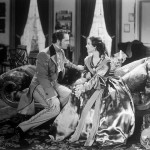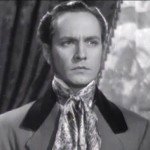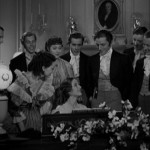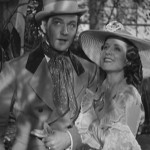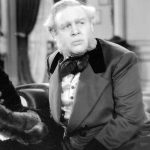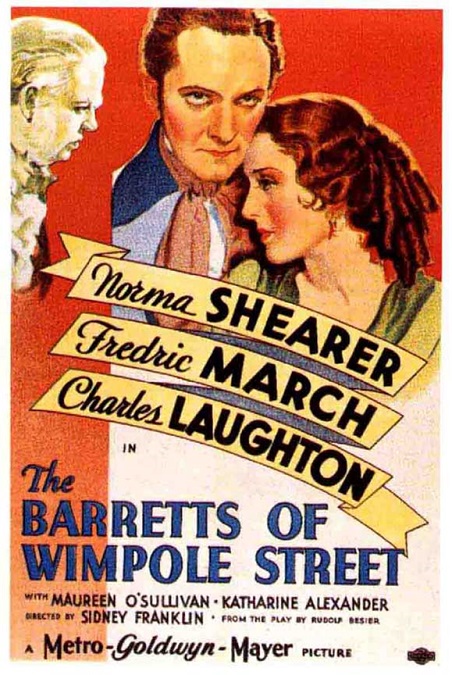
The Barretts of Wimpole Street – 1934
I went into watching this film with no knowledge of what it was about. I was pleasantly surprised by the depth of the story. I was not expecting the heavy drama. It was drama that was uncomfortable to watch. It had to do with the real-life romance and subsequent marriage of two famous poets, Elizabeth Barrett and Robert Browning.
The film was marked as a big romance, and it certainly was that. But I found the bigger issue to be one of a family whose domineering and tyrannical father was so cruel as to willfully deny his children any happiness. He was manipulative and selfish in his dealings with them, using powerful guilt trips to cow his sons and daughters into obedience. I mean, the romance itself didn’t present the most prominent conflict to the plot. The film’s biggest tension was the father’s mean-spirited oppression of his children.
Norma Shearer played Elizabeth Barrett, a girl who is so ill that she is generally confined to her sick-bed. But she writes her poetry and exchanges letters with another poet, Robert Browning, played by Fredric March. It would all be a picture perfect romance, except for her father, played by Charles Laughton, is an ultra-conservative Christian, who’s self-righteous and supremely pious ways have long since turned to cruelty disguised as love.
Mr. Barrett terrorizes his children, both emotionally, and physically. He constantly tells Elizabeth that she is sick and that she will never get better. He keeps her in poor health so that she will always have to depend on him to survive. But when her relationship with Mr. Browning escalates to a point where they actually meet and the fall in love, she begins to realize the true nature of her father’s affections.
Love gives Elizabeth the strength to regain her health. She begins to realize that she can get better, and that her father wants to keep her sick so that she will never leave him. For me, the real drama of the film is Elizabeth’s character arc as she rebels against her father. In the end she decides to leave him, fully realizing that she will leave with nothing but the dress she is wearing. She runs into the arms of her lover, marrying him in a secret ceremony, and when she did, I applauded her. Her personal struggles for freedom interested me more than the romance, or her regained health.
Shearer’s performance was slightly melodramatic, and she made a little too much use of the over-exaggerated hand gestures and facial expressions that actors had been using in the silent rea, though it wasn’t too bad. But aside from that, her style of acting was real and engaging. The role she played demanded a wide range of emotions and she seemed to pull them all off with ease. Fredric March also did a fine job, but I think that his performance was a bit overshadowed by Shearer. But he seemed passionate and sincere about his performance, so maybe I shouldn’t be so hard on him.
Laughton did a good enough job, though with the exception of one scene, his character was pretty one-note. He played his one emotion, angry self-righteousness, very well. But I have to mention the one scene where that stolid mask was dropped for an instant. In it, Mr. Barrett confesses to Elizabeth how much he really loves her. The intensity of his affection for her borders on inappropriate and uncomfortable. He seemed to love her a bit too much, and possibly in an un-fatherly way. This incestuous aspect of his character was stronger in the original Broadway play upon which the film was based, but director of the film, Sidney Franklin, took all of that out of the script. However, Laughton was quoted as saying, “They can censor it all they like, but they can’t censor the gleam out of my eye.” And he was absolutely right because I certainly picked up on it.
And lastly I have to mention another wonderful performance. Elizabeth’s younger sister, Henrietta, played by Maureen O’Sullivan, was, for most of the film, even more rebellious than any of her eight siblings. She was generally the most vocal about her misery, living under the oppressive shadow of her father. She fell in love with a soldier and when her father found them out, she was told that she would not be allowed to marry him or even see him ever again, for fear of being completely disowned. O’Sullivan’s acting was, at times, nearly as powerful as Shearer’s.
I’m not sure exactly what I was expecting, but the depth of the drama was a pleasant surprise. I thought the entire cast did a great job. And knowing nothing about the story, I found myself really questioning whether Elizabeth and Robert would end up together, whether Elizabeth would find the courage to defy her father and leave him, and that is a credit to both the director and the script. Well done, everyone!
